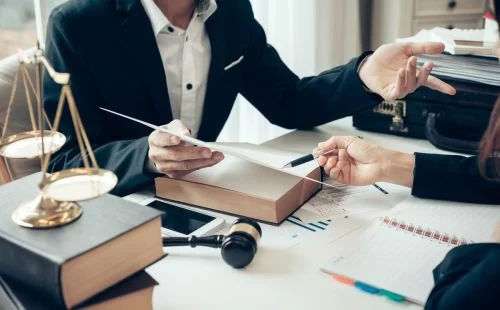
How I Found a Pro Bono Lawyer in the U.S. and What You Should Know
When I found myself facing a complicated legal situation with no money to hire an attorney, I panicked. I had no idea how the legal system worked, and the thought of standing alone in a courtroom was terrifying. That's when I started digging into how to find a pro bono lawyer — someone who could represent me for free. What I discovered could help you too.
What Is a Pro Bono Lawyer and Why They Matter
Pro bono is short for the Latin phrase "pro bono publico," which means "for the public good." In the legal world, it refers to lawyers who offer their services for free to people who can’t afford them. These aren’t second-rate attorneys — many are experienced, highly skilled professionals who volunteer their time because they believe in equal access to justice.
In my case, I was dealing with a housing dispute that could have left my family homeless. I was overwhelmed, confused by the legal jargon, and too broke to even think about hiring a lawyer. That's when I started researching how to find a pro bono lawyer near me.
1. Start With Legal Aid Organizations
The first place I reached out to was my local legal aid office. These nonprofit organizations exist in nearly every state and offer free legal assistance to people with low incomes. I found my local office by searching “legal aid + [my state]” online.
They had a simple application process that required proof of income, ID, and details about my case. Within a week, I had a consultation scheduled. Even though they couldn’t take my case directly, they referred me to another pro bono program that matched me with an attorney who had expertise in housing law.
2. Check With Local or State Bar Associations
Most state bar associations run or partner with pro bono referral services. I contacted the bar association in my state and was surprised at how helpful they were. They guided me through their free legal clinics and introduced me to volunteer lawyers in my area.
Bar associations often host legal nights where you can meet with attorneys and get advice on your case. I attended one such event and ended up meeting the lawyer who would eventually take on my case — completely free of charge.
3. Law Schools Can Be a Hidden Gem
One tip I almost missed: law schools. Many offer free legal clinics staffed by law students working under the supervision of licensed attorneys. The students are eager to help, and in many cases, they’re incredibly well-prepared and passionate about their fields of law.
I connected with a law school clinic that helped me with paperwork, deadlines, and negotiations. They even coached me through my court appearance. Although they couldn’t represent me in court, their guidance gave me confidence and clarity during a stressful time.
4. Nonprofits and Advocacy Groups Often Offer Legal Help
If your issue is tied to a specific cause — like domestic violence, immigration, disability rights, or veteran services — there’s a good chance a nonprofit offers legal help in that space. I once met a woman in a family law clinic who found her lawyer through a domestic violence support group. Her attorney not only helped with the custody battle but also connected her with housing and financial resources.
These organizations understand the emotional side of legal troubles and often offer holistic support, including counseling, shelter, and food assistance in some cases.
5. Ask Your Community and Look Online
Sometimes, help comes from unexpected places. I posted anonymously in a local community forum explaining my situation. Within hours, people were sharing their stories, recommendations, and even direct contacts to attorneys who had helped them for free.
Be cautious online, though. Make sure you're dealing with legitimate sources. Avoid anyone who asks for upfront payment or offers vague promises. Stick to verified directories and local organizations — or come visit our trusted team at ESPLawyers for guidance you can count on.
Real Stories: Why This Matters
When I finally got to court, I wasn’t alone. My pro bono attorney stood beside me, spoke on my behalf, and helped resolve the dispute without me losing my home. The peace of mind that brought was priceless.
I’ve since met others who benefited from pro bono help — a single dad who got custody of his son, an immigrant who avoided deportation, a disabled vet who secured housing rights. Their stories, like mine, all started with a question: how do I find a lawyer when I can’t afford one?
What to Expect When You Work With a Pro Bono Lawyer
While you won’t pay for their services, pro bono attorneys are still professionals who deserve respect and cooperation. Be honest about your situation, follow their advice, and provide all requested documents on time. Remember, they’re volunteering their time to help you.
Also, be aware that not all cases will be accepted. Sometimes the need outweighs the number of available lawyers. That’s why it’s important to start early, be persistent, and explore all your options.
Resources That Helped Me
Legal Aid Society in my city
State Bar Association pro bono referral
Local law school legal clinics
Community nonprofits
Online directories of legal aid services
Whether you're dealing with eviction, custody, immigration, or civil rights issues, there's help out there. You just need to know where to look. I hope my story and these tips can give you the confidence to take the first step.
If you need help navigating your options, I highly recommend reaching out to ESPLawyers — they specialize in matching people with the right legal help, fast and free of judgment.








